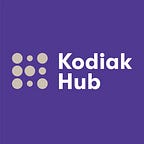Know your Supplier. Grow your Business.
When supply chains grown in size, the amount of visibility shrinks. It’s a saddening, but true, correlation that many companies come to grip with, all too late.
To quote the Notorious B.I.G., “Mo’ money, Mo’ problems”
Headlines of child labor, faulty quality control or lack of sustainable/environmental standards can give blows to a company’s brand and value so detrimental, not even Rocky Balboa could stay standing.
The difference between a positive headline and a negative one can trace back to one-single lapse in internal/external supply chain processes.
But what if I told you, there exists a way to limit the risk of a supply chain hurdle, before the starting gun even fires?
Supplier Relationship Management (SRM) is a supply chain process that has emerged as a ‘must have’ procedure for many large industrious brands. The ideology behind SRM is to create stronger buyer-supplier relationships through compliance and communication; resulting in better supply chain transparency and traceability.
This is a necessary process to make sure that your business is working with the right suppliers, building long lasting, trustworthy, and mutually beneficial relationships that create a means for innovation and growth.
SRM can be used to not only manage and nurture a relationship between buyer-suppliers, but can create the pillars for building the relationship from the start. Putting importance on supplier selection can prove fruitful for large scaling organizations.
“To survive in heterogeneous volatile market an effective supplier selection method is highly required for any company.” (Mukherjee 2014)
But that’s just the thing, what is the right supplier??
Compliant Supplier, Content Buyer
Mutual gain begins with mutual trust.
Abiding by laws and standards is a good way to know that a supplier and the relationship built between the buyer-suppliers is one that can be trusted.
Before one can judge if a supplier is living up to their standards, and international standards for production, one must know the standards!
Strong Standards, Strong Supplier
The International Organization of Standardization presets international business standards for businesses globally to better business practices for the good of consumers and the world we live in.
Practicing all of the standards set by the ISO is a highly desirable trait in a supplier, but nearly impossible considering the industry specificity of several of the standards. The most common and most desirable standards, a ‘good supplier’ would abide by, are:
ISO 14001: Environmental Management
ISO 26000: Social Responsibility
Sustainability; for your business and mine.
Focus on sustainability in the supply chain, and within the production of a supplier’s work, is typically a good way to manage external risk factors (Mavi 2016).
The concerned millennial is reading the small print on the popcorn, and re-tweeting the headlines on twitter.
For example, if your brand is sourcing chemicals from a supplier that is using child labor to produce the chemicals, your brand is inherently employing child labor. It’s the harsh truth of the buyer-supplier relationship and collaboration in today’s market.
Brands become a harmonious entity that is judged as a whole.
That’s why it’s important to know that your business is working with suppliers who have environmental initiatives that align with your brand.
Cutting corners on eco-friendly suppliers because of a higher price tag may save your business money up front, but what will it cost you in the end?
Quality is Key!
Collaboration with quality suppliers is a must. This comes back to the idea of cutting costs when selecting suppliers to associate with your business.
“[…] Cheap does not always represent the best value for money. If the quality of your supplier’s product or service is poor, you may incur extra costs for returns and replacements, and risk losing business with any delays that result.” (Queensland Government)
Judging the quality of a supplier’s product and work is difficult to do before selecting a supplier, but that’s why annual reviews, auditing, assessments and evaluation are crucial for quality management.
Defective suppliers can create real troubles for your supply chain, but with proper governance, and frequent enquiry, quality assurance is manageable. This is even true for large-scale globalized supply chains.
Communication creates community
Nobody needs dodgy coworkers, friends or family in their life, so why would you select a non-communicative supplier?
Communication is a crucial part of human existence and evolution. The basis for moving forward within business, our private life or societally is to communicate with other individuals.
In this same regard, you should be selecting suppliers that you know will send back that self assessment, accept the annual audit, take the initiative at performance reviews, instill their own quality assurance checks, and is willing to relay all that information back to you without having to pry the information out of their hands.
Build a communicative relationship, with the opportunity for open dialogue, and watch as your partnership creates mutual growth and innovation.
In the end…
With the proper blending of effective supplier selection and creating a basis for supplier relationship management, working with the right suppliers isn’t so difficult.
This information creates a basis for understanding what a ‘good supplier’ is, but in the end, supplier selection and management is heavily reliant on your company values, initiatives and goals. Choose wisely.
Until next week.
